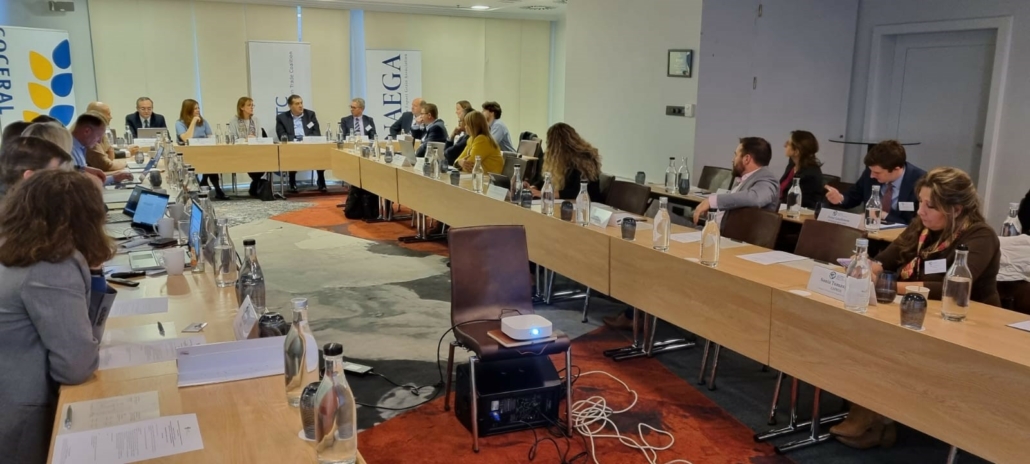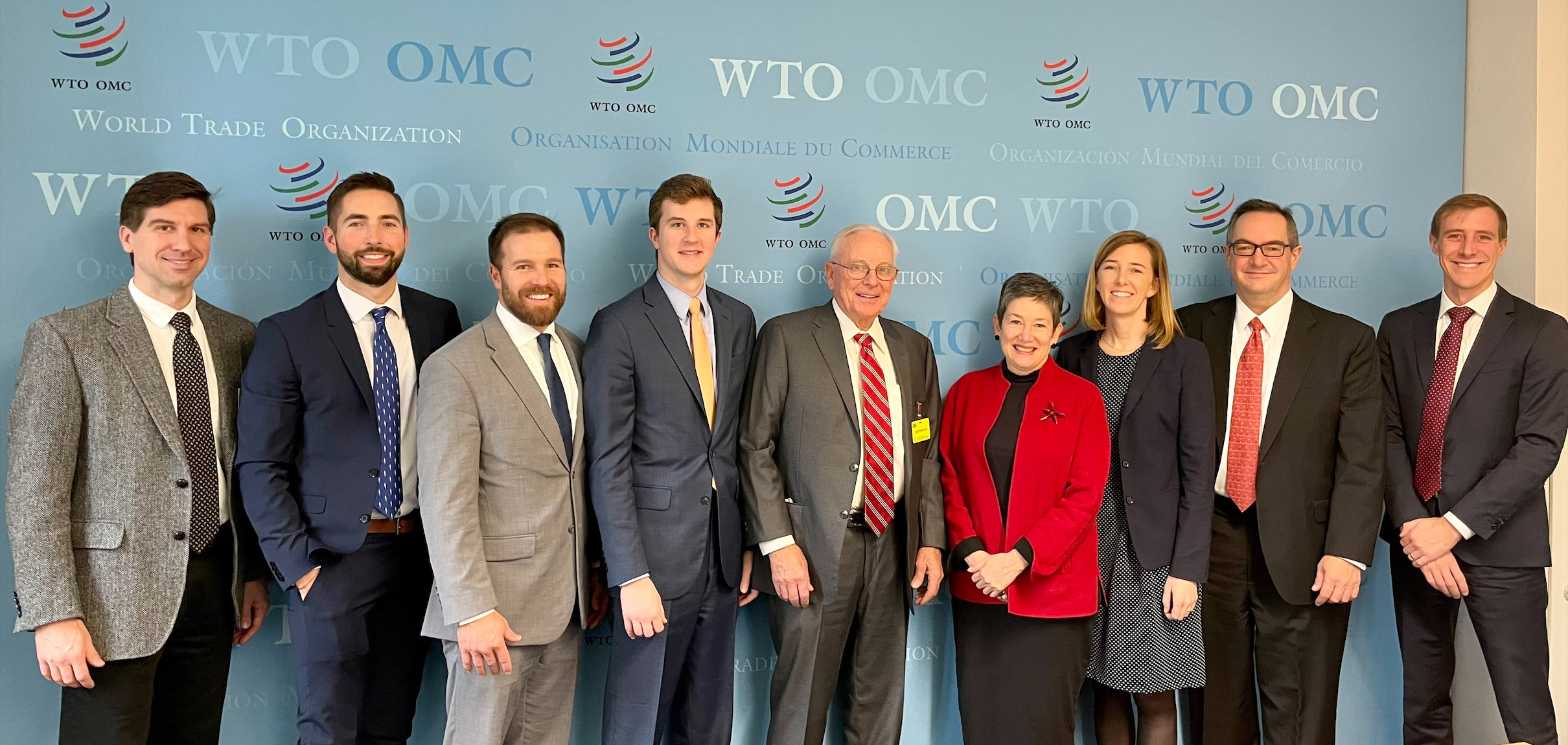USW Trade Policy Team Addresses India’s Subsidies, Turkish Flour at WTO
During World Trade Organization (WTO) meetings in Geneva last week, USW’s Trade Policy team was able to dig deeper into programs in India and Turkey that have potential to affect global wheat trade and ultimately the bottom lines of U.S. farmers.
It was also able to touch base with U.S. wheat allies on trade issues with those countries.
USW Vice President of Trade Policy Dalton Henry and Director of Trade Policy Peter Laudeman had several consultations with delegations from other countries about the situation in India involving subsidies and wheat stocks.
India’s wheat and rice public stock holdings have been an ongoing concern, as the country’s subsidies programs have resulted in an oversupply of domestic wheat and rice. When India’s government releases those grain stocks into the export market, it often does so at prices below what it initially paid to purchase the wheat. Studies show the distortion of international wheat and rice trade from these policies cost U.S. wheat farmers anywhere from $500 million to $800 million per year in lost potential income.
“We had some very good conversations and although we did not receive all the answers we are looking for on India, it was encouraging to learn there is international support,” Laudeman said.
“We had support at home, too, from U.S.A. Rice, which was very helpful. It is also very important for U.S. agriculture when separate groups come together to work on issues.”
Turkey’s “flour dumping” was also a topic addressed during USW’s visit to Geneva. Turkey maintains substantial domestic support programs that encourage overproduction of flour, which the government then sells into overseas markets at less than global price levels. USW estimates the dumped flour hurts domestic milling industries around the world and subtracts anywhere from $100 million to $500 million from U.S. wheat export demand each year.
“We were previously able to submit a question to Turkey regarding the Turkish flour program through the U.S. delegation,” Laudeman explained. “Both Brazil and Australia joined us on that question, so at the WTO meeting we met with delegations from those countries and thanked them for their support. We also made it clear to other groups we met with that we would love to have more allies join us, if it makes sense for them to do so.”
Face-to-Face in Brussels
From Geneva, Henry and Laudeman traveled to Brussels for the annual meeting of the International Grain Trade Coalition (IGTC), an international organization that advocates for better trade policies and global food security.
“Many of the trade barriers that U.S. wheat producers face today aren’t tariffs, but stem from restrictions on technologies used in agriculture, which is where IGTC really shines,” Henry said. “It gives us the opportunity to work hand-in-hand with countries that would normally be our export competitors to make sure markets remain open. IGTC has working groups ranging from pesticide MRLs (maximum residue limits) to plant breeding innovations, all of which are critical to U.S. growers.”

USW’s Dalton Henry and Peter Laudeman attended the annual meeting of the International Grain Trade Coalition (IGTC), an international organization that advocates for better trade policies and global food security. The meeting, held in Brussels, was the first in-person annual meeting in a few years due to the COVID pandemic.
The USW team was also able to meet new staff from global trade groups and get updated on several roles that transitioned during the pandemic.
“We were able to jump in and reengage with a lot of our grower and grain trade partners from all over the world,” Laudeman said. “If there is one key takeaway it’s that the global grain trade relies heavily on face-to-face interaction when it comes to supply chain relationships. This IGTC meeting was a good way to restart the interactions.”


